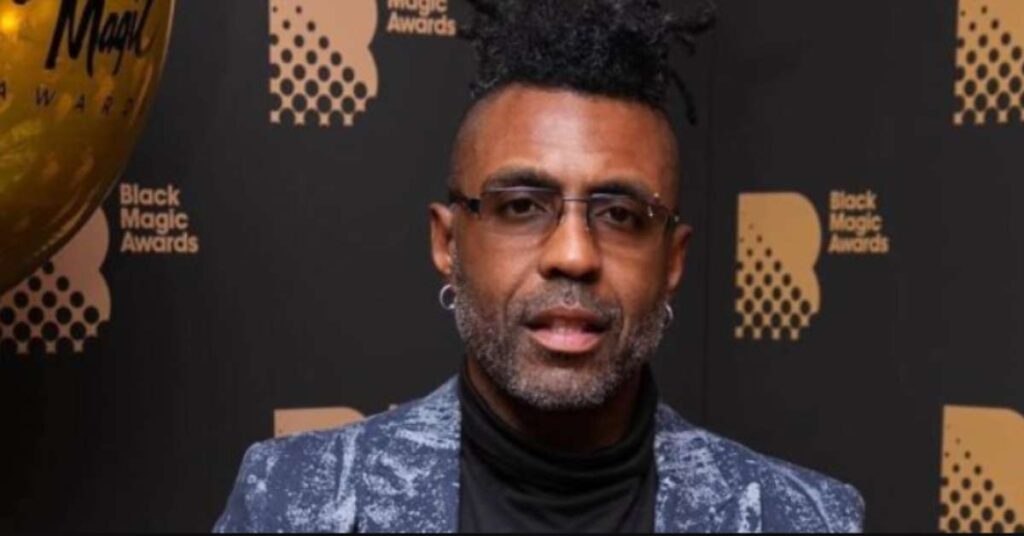
Omar Lye-Fook’s Wake-Up Call: Why Black Men Can’t Ignore Prostate Cancer
For decades, Omar Lye-Fook has been a name synonymous with smooth soul, boundary-breaking music, and timeless British artistry. Known to fans around the world simply as Omar the singer, his velvety voice and signature tracks like There’s Nothing Like This have made him a staple of UK neo-soul.
But in 2023, Omar stepped into a different kind of spotlight—not as an artist, but as an advocate for Black men’s health. After being diagnosed with prostate cancer during a routine checkup, the British icon made the bold choice to speak publicly about his experience. His message is simple, urgent, and life-saving: Get tested.
A Diagnosis That Came Out of Nowhere

Despite showing no signs of illness, Omar remained committed to regular health screenings as part of his personal wellness routine. It was during one of these checkups in September 2023 that a PSA (Prostate-Specific Antigen) test flagged something unusual.
“I had no symptoms whatsoever,” Omar told the press. “It was just part of my usual health checks—nothing felt off.”
Following the abnormal PSA reading, doctors recommended further tests. An MRI scan and biopsy confirmed the suspicion: prostate cancer. Omar had caught it early, but the discovery was still shocking.
His story is a powerful reminder that prostate cancer can develop silently, and without early screening, many men never find out until it’s too late.
A Personal Fight, A Public Mission
Instead of keeping the diagnosis private, Omar chose to go public. His reason? To save lives.
“I realised that too many Black men aren’t talking about this,” he shared. “We don’t think about it, we don’t ask about it, and we don’t get tested. That needs to change.”
By stepping forward, Omar Lye Fook—also known by fans as Omar S and Omar musician—joins a growing number of public figures using their platforms to raise awareness about a disease that disproportionately affects Black men.
According to medical research in the UK:
- Black men are twice as likely to be diagnosed with prostate cancer compared to white men.
- 1 in 4 Black men will develop the disease in their lifetime.
- Many are diagnosed at a late stage, where treatment becomes more complicated.
These aren’t just statistics—they’re lives, families, and futures at risk.
Facing the Treatment Head-On
After weighing his options and speaking with men who had faced similar diagnoses, Omar underwent a targeted therapy known as Brachytherapy in early 2024. This treatment involves placing radioactive material inside the prostate to deliver high doses of radiation directly to the cancer.
Omar credits the support of his family—particularly his daughters—for helping him stay grounded throughout treatment. The experience has added new depth to both his life and his music.
“I feel like I’ve been given a second chance,” he said. “Now I want to use that to make a difference.”
Music with New Meaning
Throughout his career, Omar Lye-Fook songs have explored love, growth, and resilience. Now, with his new album Brighter The Days set to launch, those themes take on a deeper, more personal tone.
“This record is about hope. It’s about overcoming,” he explains. “That’s what I want people to hear in it.”
Fans of Omar music can expect the same silky grooves and thoughtful lyrics, but now with the wisdom of someone who has faced a life-altering diagnosis and come out stronger.

A Community Urgently in Need
Omar’s story isn’t just his own—it reflects a wider issue in healthcare for Black men in the UK.
Despite having a higher risk for prostate cancer, Black men are less likely to be informed, offered tests, or referred for follow-ups as quickly as others. There are also persistent barriers to care, including mistrust in the medical system, cultural silence around men’s health, and lack of targeted outreach.
This is why advocacy groups and medical experts are calling for immediate action:
- GPs should initiate conversations about prostate cancer risk with Black men starting at age 45.
- Routine PSA testing should be offered to those in high-risk categories.
- Public health campaigns must address racial disparities in awareness and treatment access.
It’s Time to Talk—And Act
Omar isn’t just calling for policy changes—he’s urging individual action.
“I tell every man I meet: don’t wait. Don’t ignore it. Just go get the test.”
And he’s right. A PSA test is a simple blood test that could catch early signs of prostate cancer before any symptoms appear. It’s quick, non-invasive, and free through the NHS.
While it’s not a perfect diagnostic tool, it’s a powerful first step in a potentially life-saving journey.
Not Just a Musician—A Messenger
For many fans, Omar has been the soundtrack to important moments in life. With hits like Saturday, Say Nothin’, and collaborations with artists like Stevie Wonder, he’s etched his place in the legacy of UK soul.
But now, Omar lyefook has become something even more powerful: a messenger of health and awareness.
Through honest storytelling and fearless advocacy, he’s reminding Black men that silence can be deadly—and that speaking up, asking questions, and getting tested are acts of strength, not weakness.
What You Can Do Right Now
Whether you’re a fan of Omar Lye-Fook songs, or you’re just learning his name for the first time, his message applies to every Black man over 45—and the people who love them.
Here are three actions you can take right now:
- Book a PSA test. Talk to your GP and ask about getting tested. Even if you feel fine, early detection is key.
- Use the Risk Checker. Prostate Cancer UK offers a free online tool that assesses your risk and guides you through the next steps.
- Talk to other men. Share Omar’s story. Break the silence. You never know who might need that push.
A Future Fueled by Awareness
As Omar prepares to return to the stage and share new music with the world, he does so with renewed purpose.
“This experience changed me. It made me more focused. More grateful. And more determined to help.”
And with that, Omar the singer becomes Omar the survivor, the advocate, the voice of a message that needs to be heard in every home, barbershop, and community hall.
So if you’re reading this, and you’re a Black man over 45—or you know someone who is—remember this:
A simple blood test could save your life. Don’t wait.

